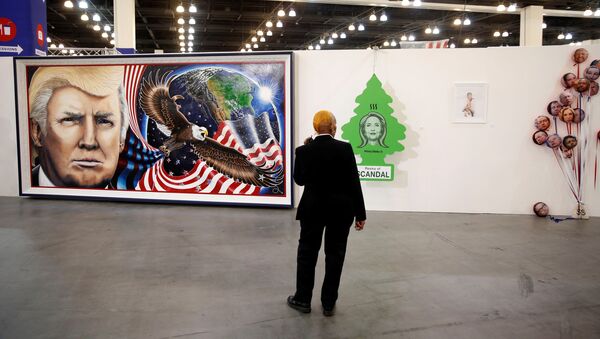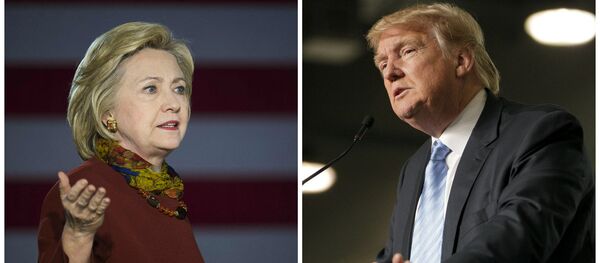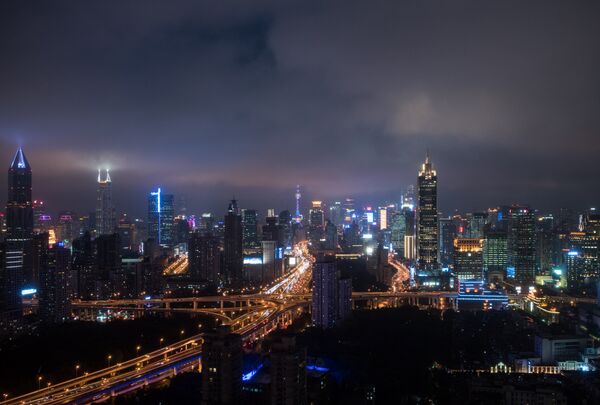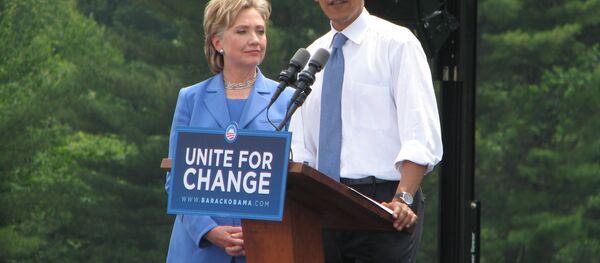Rachman, an open proponent of 'global governance', and the chief foreign affairs commentator for the Financial Times, successfully predicted the outcome of the Brexit campaign long before the referendum took place, warning about a "complacency" among mainstream political analysts unwilling "to believe the warning signs from the opinion polls."
Now, he's warning that the globalists' hold on American politics is also slipping, with Donald Trump's vision of America and its place in the world threatening to unravel the planet's decades' long drive toward globalization.
Pointing out the parallels between the pressures which led to the success of Brexit in the UK and the situation in the US, the commentator warned that "the coalition of frustrated working-class voters and nostalgic nationalists that the Republican has put together is uncomfortably reminiscent" to the British vote. "Trump's 'make America great again' mantra has an echo of the Brexit campaign's winning slogan 'Take back control'," he added.
"Nor is this just an Anglo-American phenomenon," Rachman argued. "Across the EU, including in France, the Netherlands, Italy and Poland, protectionists and nationalists are gaining ground."
"As Trump might put it: 'Something's going on.' That something is a historic shift in economic and geopolitical power that is bringing to an end a 500-year period in which Western nations have dominated global affairs. This erosion of the West's privileged position in world affairs is creating new economic, geopolitical and even psychological pressures in both the US and the EU," the commentator noted.
Asia, the journalist recalled, is now the driving force behind this changing economic and geopolitical picture. "In 2014, the IMF reported that, measured in purchasing power, China is now the world's largest economy. The US had held this title since 1871, when it displaced the UK; now China is number one." And China's not alone. "The IMF reports that three of the world's four largest economies are now in Asia," with India and Japan trailing China and the US for the top spot.
"It's true that if you measure economies at current exchange rates the US is still the world's largest economy – and European nations also rise up the pecking order," Rachman admitted. "But growing Chinese and Asian economic weight is demonstrable in many other ways. China is now the world's largest manufacturer and largest exporter. It is also the world's largest market for vehicles, smartphones and oil – and the biggest single market for many Western companies such as Daimler and KFC." What's more, "in 2012, for the first time in over a century, Asian countries spent more money on armaments and troops than European nations."
And contrary to conventional liberal economic wisdom, which suggests that Asia's growing wealth should theoretically 'lift all boats' and benefit the countries of the West of the West as well, the truth, Rachman noted, is "that particular communities in Europe and the US, especially manufacturing workers and the less educated, have had their living standards badly hit by competition from Asia."
And rising nationalism is not limited to the West either, the commentator suggested, with China's growing economic power altering Beijing's perceptions of their place in the world, most recently witnessed through China's assertive actions in the South China Sea.
At the same time, Rachman suggested that it doesn't really matter whether Hillary Clinton or Donald Trump wins the election – the outcome of increasing tensions between the West and China, and a continuing decline in support for globalization, is likely to be the same.

"Hillary Clinton is regarded in Beijing as a dangerous hawk who would be likely to be more determined in pushing back against China's maritime claims," the journalist noted. "President Xi is a tough-minded nationalist, so a Clinton presidency would increase the chances of a clash in the Pacific between the US and China," he added. "Trump, by contrast, seems relatively uninterested in America's strategic role in the Pacific, but his vociferous protectionism has led him to propose [heavy] tariffs on Chinese goods. Any such policy would be regarded as an act of warfare by Beijing," Rachman warned.
Ultimately, Rachman lamented that today, "the era when globalization seemed like a process that could create only common interests between China and the West is over. It is now giving way to an epoch that looks altogether darker and more dangerous."
This message contrasts wildly with the commentator's assessment only eight short years ago, when Rachman suggested that the formation of a world government of sorts was not only plausible, but really just a matter of time.





